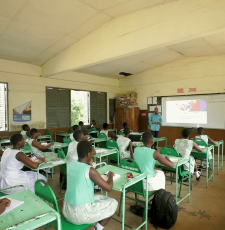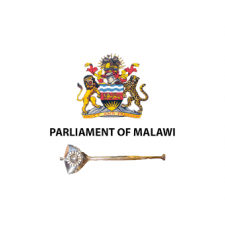
EIFL has written to the President of Nigeria, His Excellency Muhammadu Buhari, requesting that he sign the Copyright Bill 2022 (SBs. 688 & 769) into law at the earliest opportunity.
The Bill, which was passed by the National Assembly on 22 July 2022, overhauls and modernizes Nigeria’s copyright system. It supports the use of works in the digital environment to help foster a creative, technology-friendly ecosystem, and introduces new exceptions for libraries, education and people with disabilities.
EIFL’s letter (11 January 2023) highlights significant aspects of the Bill:
Support for culture, online education and persons with disabilities
The new Bill will enable libraries and other cultural heritage institutions in Nigeria to preserve Nigerian creative expression for future generations. In particular it will spur efforts to safeguard Nigerian cultural heritage against threats posed by climate change, such as more fires and flooding, and other disasters.
The Bill will support education and teaching in the digital age. The COVID-19 pandemic highlighted the need for appropriate exceptions to enable online access to digital resources, as libraries shifted their operations online to support education, research and local communities. The Bill contains the right mix of exceptions and compulsory licences that will enable libraries and educational institutions in Nigeria to continue to serve the public in future pandemics or other other emergency situations.
And by implementing the Marrakesh Treaty for persons with print disabilities, the Bill upholds the human rights of people who are blind and visually impaired. It will boost library services to persons with disabilities, and will facilitate the cross-border exchange of accessible format copies for the benefit of Nigerians with print disabilities both at home and the diaspora living abroad.
Support for copyright compliance and Nigeria’s international obligations
The exceptions in the Bill, including the updated fair dealing provision, are consistent with Nigeria’s international treaty obligations and are comparable to exceptions contained in the copyright laws of countries with successful publishing industries, such as the United States, Canada, the United Kingdom, EU Member States, and Singapore. These balanced limitations and exceptions will enhance the credibility of the copyright system in the eyes of the general public, and lead to greater compliance with the copyright laws.
EIFL’s letter to His Excellency Muhammadu Buhari, President of Nigeria, 11 January 2023.
Further information and background
In 2021, EIFL presented its comments on Nigeria’s Copyright Bill 2021 (Executive Bill) at a public hearing organized by the Nigerian Senate. EIFL supported the 2021 bill and was pleased when the text was adopted by the legislature as Copyright Bill 2022 (SBs. 688 & 769). Now the final step is for the President to sign the Bill into law.
EIFL’s comments on Nigeria’s Copyright Bill 2021 (Executive Bill), 12 October 2021.
Nigeria quietly, but surely, embracing balance, openness and flexibility in her copyright regime? Blog by Desmond Oriakhogba, Barrister and Solicitor of the Supreme Court of Nigeria, and Lecturer, Law Faculty, University of Benin (The IPKAT, October 2021).
SHARE / PRINT









